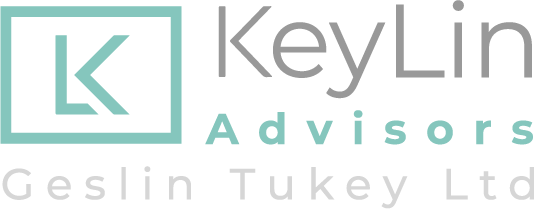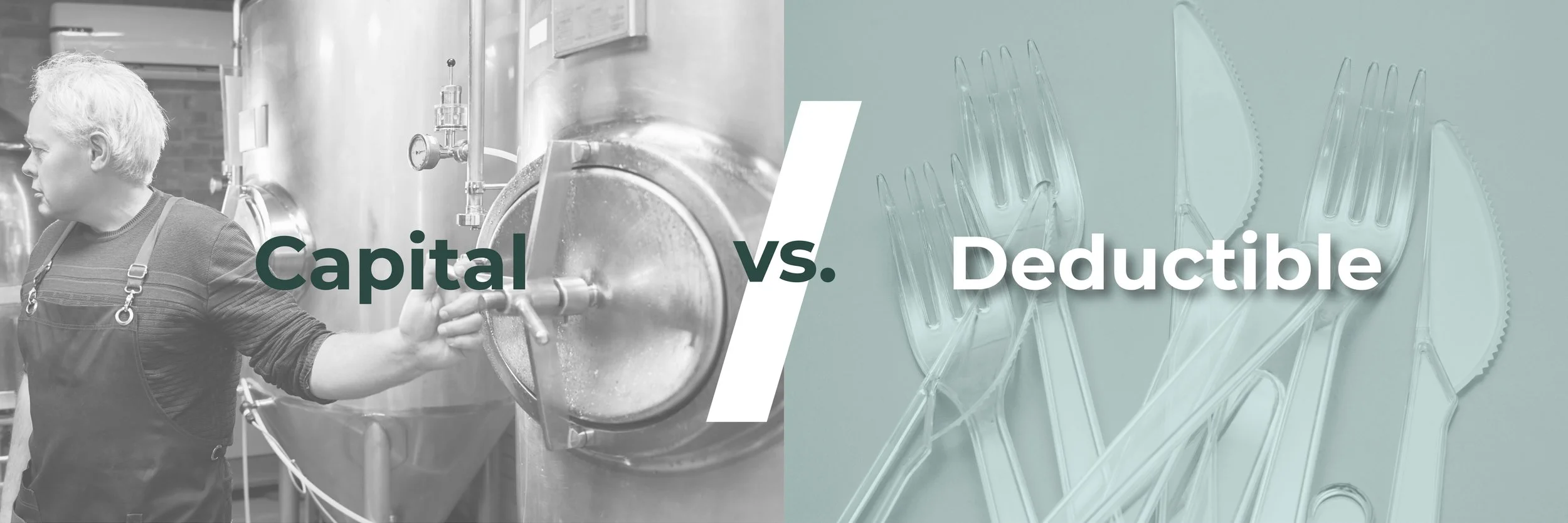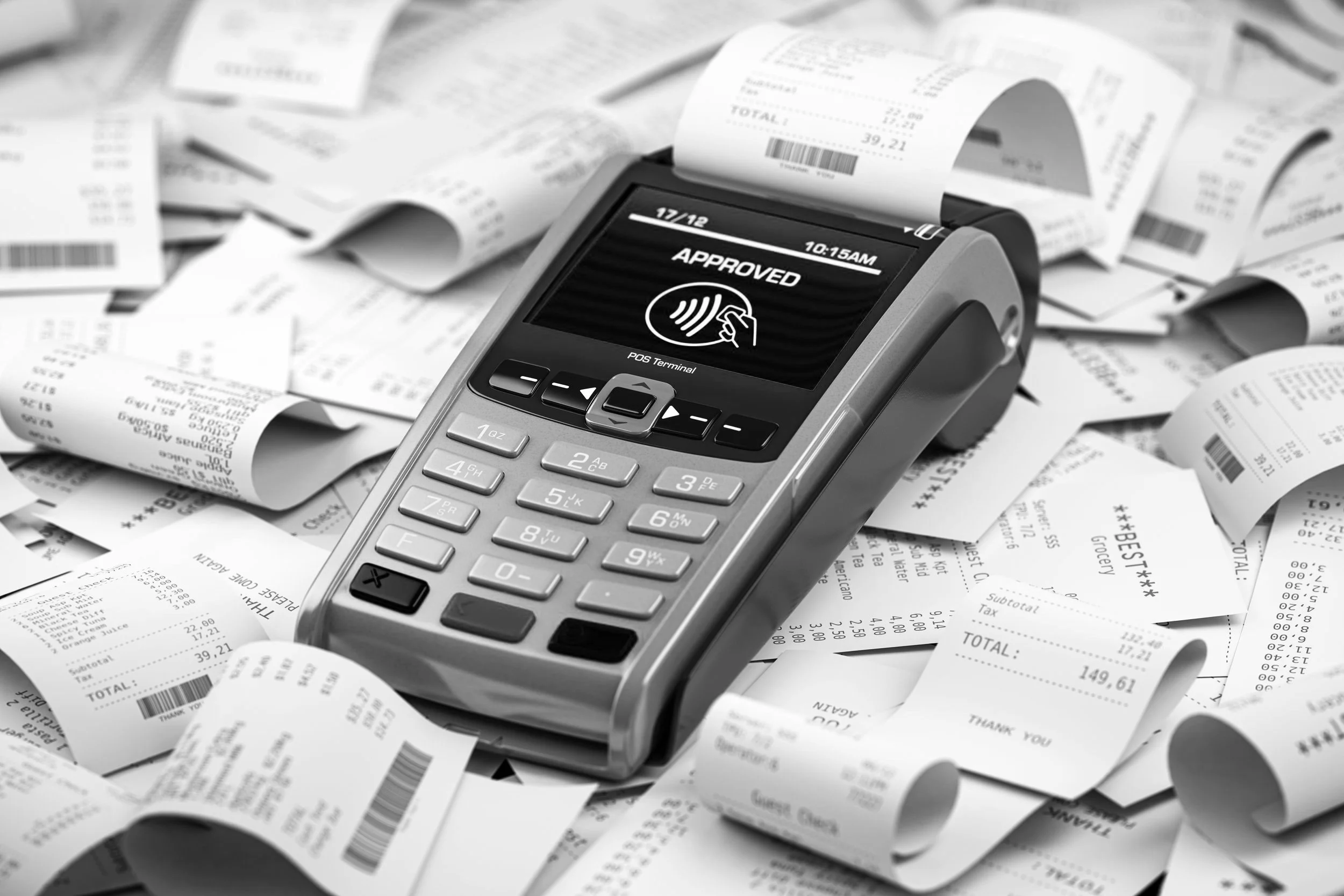Is This Deductible? A Small Business Tax Deductions Checklist
If the first step in getting ahead of your small business finances is separating your personal and professional accounts, your second step should be capturing all your business expenses. Every year, we see small business owners fail to deduct relevant expenses because of a lack of documentation on their part. Once your expenses are captured, you can begin reviewing expenses to better understand your tax deductions for small businesses.
The Basics of Expenses and Deductions
Let’s start by reviewing the difference between expenses and deductions. An expense is any cost associated with running your business, while a deduction is a specific type of expense you can remove from your taxable income. Deductions can reduce your tax liability. However, not all expenses are deductible.
In order to be deductible, expenses must be both ordinary and necessary. Ordinary expenses are those that are common and accepted, like a computer, and necessary expenses that are required for you to run your business, like mannequins for a clothing store. For more information on the basics of expenses and deductions, read this article.
While understanding ordinary and necessary expenses is a good start, there are other rules of thumb to keep in mind in understanding tax deductions for small businesses.
Specific Tax Deductions for Small Businesses
Keeping track of your expenses is important as you start and grow your business, because it allows you to better understand when your expenses are truly deductible and when they are not. When you are reviewing your expenses, keep in mind that they must meet the ordinary and necessary criteria, as well as the following:
Personal vs. Business Expenses
Part of the benefit of separating your business spending from your personal spending is to make tracking both expenses easier. As a rule, personal expenses are not deductible for your business. However, if there are expenses that are shared between your professional and personal lives, such as a home office space or cell phone, you may be able to deduct a part of the expense proportional to how much you use it for your business.
Capital vs. Deductible Expenses
Capital expenses are long-term investments in your business that are ultimately assets, such as startup costs or large equipment. Deductible expenses, on the other hand, are generally shorter-term investments, like plastic utensils in a restaurant. Capital expenses are generally not deductible over one tax period. However, there are ways you may be able to work with your tax professional to ensure your larger expenses are deductible over a period of multiple years.
Other Deductible Expenses
There are many other types of expenses that may be small business tax deductible items, depending on your unique circumstances. Payments you make to employees for services provided, such as wages, salaries, bonuses, and commissions, are generally deductible. So is insurance, provided you’re following the ordinary and necessary rule of thumb. And, if you don’t own a property and are using it for your business, rent can also typically be deducted.
These deductions and rules are just skimming the surface of what tax deductions for small businesses can — and cannot — be made. There are additional considerations to keep in mind, too, such as how much of each expense is deductible, and how much you can deduct overall.
To best understand your small business tax deductible items, we recommend working closely with an accountant and a tax professional. They will be more familiar with the IRS’ tax deductions for small business rules to follow, and can help you legally make the most of your tax return.
Making Tax Deductions
When it comes time to make your small business tax deductions, how you will deduct your expenses will depend on your accounting method. Often divided into cash or accrual, your accounting method dictates how and when you demonstrate income and expenses. Most often, businesses use accrual accounting.
For accrual accounting, use the “all-events test” and ensure your economic performance of the deduction has occurred. Not sure what that means? Or which accounting method you use? We can help.
Your Small Business Deductions Checklist
If you’re looking for a simplified small business deductions checklist, look no further. Here are some quick questions to check on as you decide whether or not your business expenses may be deductible.
Check your expenses.
Do you have documentation, like a receipt?
Verify it’s a business expense.
Check whether personal expenses are used for business purposes at all.
Verify it’s not a capital expense.
Is the expense going to be useful long-term? Is it an asset for your business?
Follow the ordinary & necessary rule of thumb.
Is the expense a generally accepted, common part of running a business?
Is the expense required in your industry for you to run your specific business?
Contact your tax professional with any questions.
Deduct!
Stay Ahead of Small Business Tax Deductions
As a small business owner, your time is at a premium. Keeping track of every item you purchase for your business and whether it’s an expense or a deduction will make your business run more smoothly all year, and especially at tax season. For support with getting clear on your small business tax deductions, book your free first consultation today. Our experts will review your unique circumstances and make tailored recommendations to help your business thrive.



